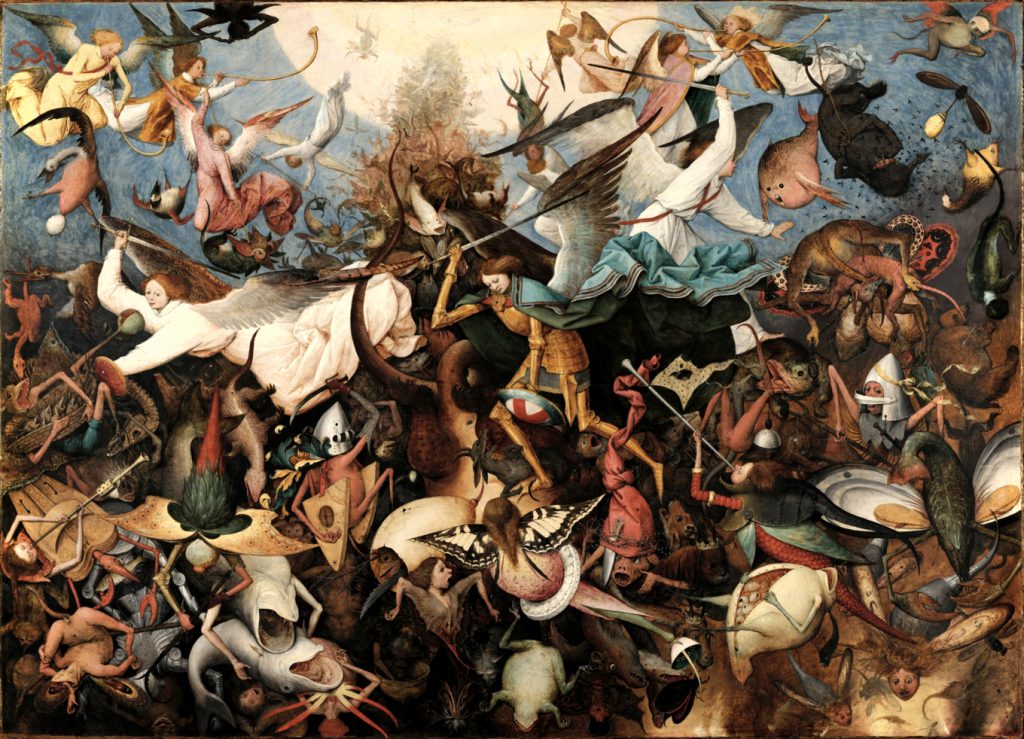While the failings of priests and bishops are an obvious place to start for dealing with the current crisis, the way toward genuine reform will require careful thinking and a broader perspective, including the laity’s place in the life, governance, and mission of the Church. This is no simple task.
For better or worse, the Church’s ability to address the crisis of clerical sexual abuse is tied up with longstanding debates over ecclesiology, which have been simmering for many decades, but especially since the Second Vatican Council. Everyone today is eager for reform, but “reform” invariably raises questions about “form,” and so the fundamental question becomes unavoidable: “What is the Church?”
Getting that question right is obviously a high stakes proposition, which explains, in part, why discussions of clerical reform and the place of the laity in the governance of the Church so easily get dragged hither and thither. Beneath every practical proposal, beneath every attempt to “get something done,” lurk some very strong theological cross currents.
These currents can drag even seemingly straightforward proposals – e.g., engaging a board of mostly lay experts to review allegations of misconduct against bishops – into a multitude of more fundamental debates about the nature of episcopal authority, the role of the sensus fidelium, and so on. The currents are strong and we’re in waters that would be treacherous even if the boat weren’t, as it were, badly leaking.
Complicating all this is the fact that, when it comes to the role of the laity in reforming the Church, the models closest to hand are often (too often) drawn from politics. There is a strong tendency to think of the clergy and the laity in antagonistic terms – democratic vs. authoritarian –or even in Marxists terms of class conflict: a “populist laity” against a “clerical elite.”
The Church, of course, is a polity of sorts, but political analogies easily become contaminated by categories that simply aren’t adequate to the body of Christ. Viewing the relationship between the clergy and the laity as zero-sum proposition is profoundly inadequate to the reality of what the Church is and ought to be.
A better place to begin is St. Paul’s first letter to the Corinthians, from which we heard in last Sunday’s second reading. Paul uses the analogy of a body to describe the relationship of the Church to its diverse members. “The eye cannot say to the hand, ‘I do not need you,’ nor again the head to the feet, ‘I do not need you.’” (Pope Francis, in last August’s letter on abuse, drew on the same Pauline passage as the theme of his reflections: “If one part suffers, all the parts suffer with it; if one part is honored, all the parts share its joy.”)
Sickness and decay in one part afflicts the whole. A part that rebels against the body harms the whole and endangers itself. If it wasn’t before, the last several months have made all of this painfully clear.
Taken seriously, this also means that – without in anyway denying the direct and specific culpability of those who have committed, covered up, or tolerated abuse – responsibility for the current crisis, and responsibility for restoring health to the Body of Christ, also lies with the laity. Waiting for renewal in the clergy without genuine renewal in the Body of Christ as a whole is a recipe for failure.
The relationship between the clergy and the laity is one of complementarity and interdependence. It is easy to see how the failings of the clergy affect the Church: When a bishop fails in his responsibility to teach and govern, the laity suffer and stray. When bishops ignore the demands of justice out of a misguided sense of mercy, the laity suffers and strays. When a bishop turns a blind eye to rot and filth – whether from cowardice, complacency, or complicity – the whole Church suffers.
But when the laity ignores its bishops and flouts their teachings, the Church also suffers. When we delude ourselves into thinking that our time and talents are our own and not for service to the Gospel, the whole Church suffers. When we publicly decry the sins of the clergy, and then lie and lust and deceive and betray in our own comfortable anonymity, we harm the Body of Christ.
The members of the Body of Christ, laity or clergy, cannot offer incense at the altars of Moloch or Mammon or Asmodeus – look around you! – and not expect their dominion to wax and grow. We cannot poison and mar the body to which we belong and expect the rest of the body not to suffer.
The Church needs to reckon with the sins of her priests and bishops. Justice and mercy are both needed in abundance. And there is much for the laity to do in helping our shepherds, and they need and want our help, in the long (and often frustratingly slow) slog of reform.
The laity holds a treasure trove that the Church will need at her disposal: legal expertise, psychological and medical knowledge, wisdom about education and human formation, hard-won knowledge about healing and forgiveness and courage, and experiences of the transformative power of God’s grace. None of these gifts can be spared.
Of course, we must also remember that this is a spiritual battle. Nothing is more important for the laity than to fight that battle and to know what we’re really up against. We must arm ourselves through prayer and the Sacraments, especially the Eucharist and Reconciliation. When we allow ourselves to be humbled, healed, and strengthened – with the irreplaceable help of the mere men God has given us to be our shepherds – we heal and strengthen the Church.
The real enemy is beyond any of us, but our Champion is stronger and our hope well-founded.
Christus vincit, Christus regnat, Christus imperat!
*Image: The Fall of the Rebel Angels by Pieter Bruegel the Elder, 1562 [Royal Museum of Fine Arts Belgium, Brussels]










